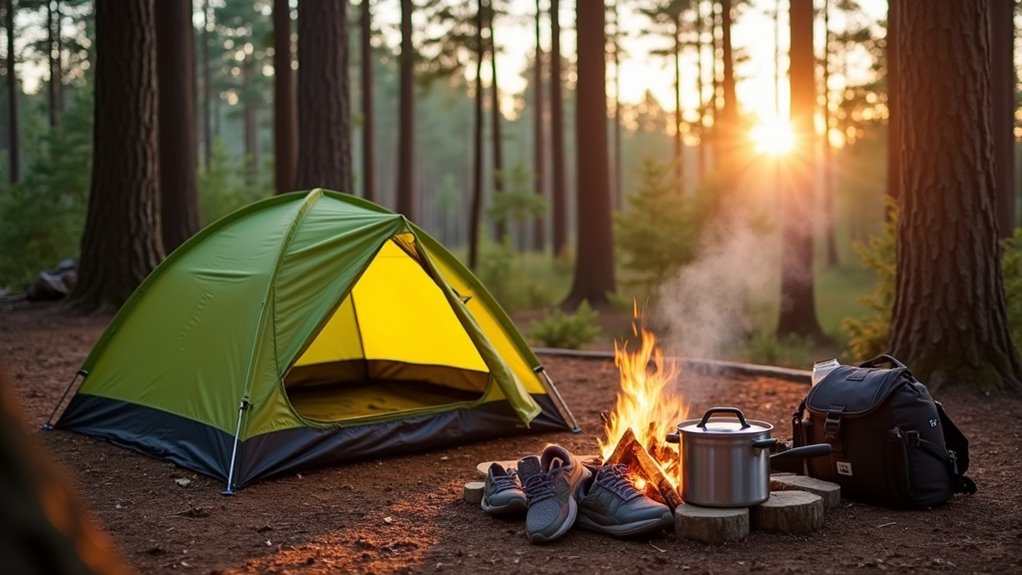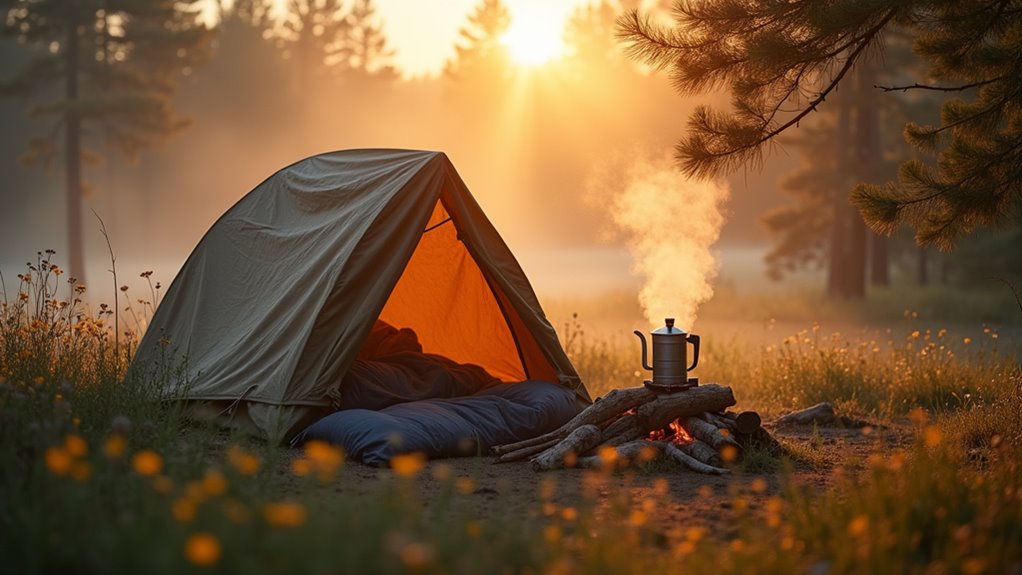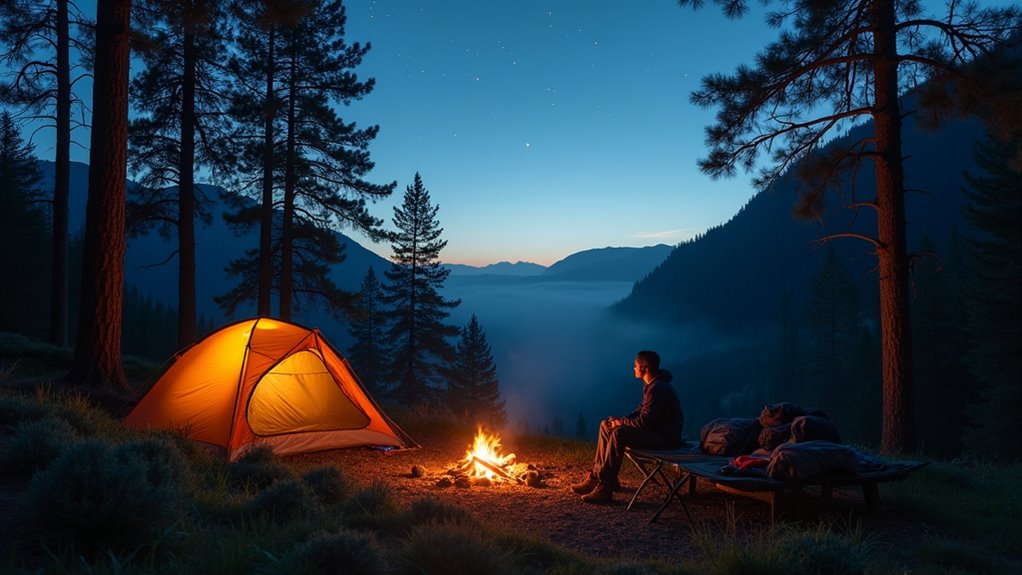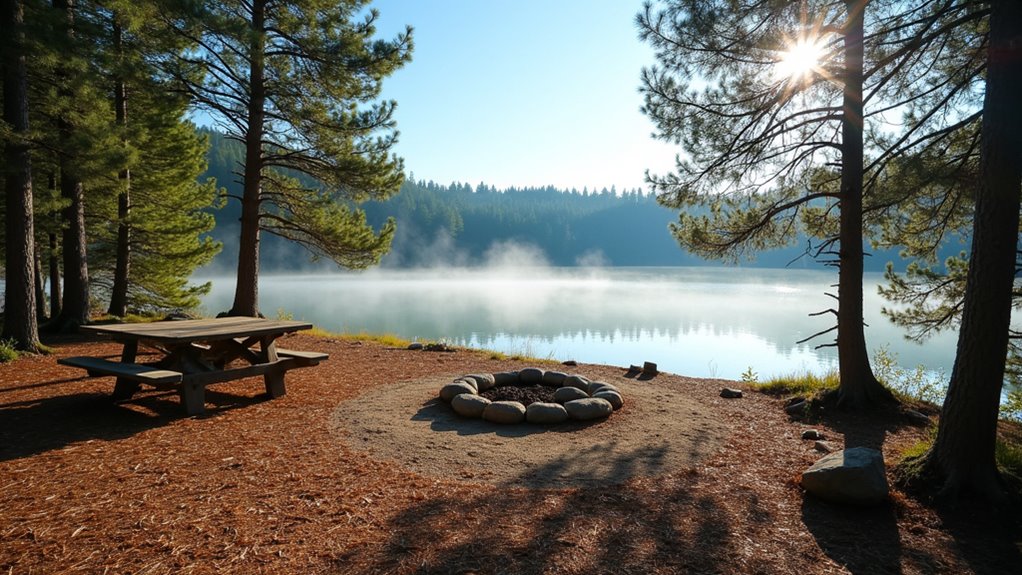Physical Address
304 North Cardinal St.
Dorchester Center, MA 02124
Physical Address
304 North Cardinal St.
Dorchester Center, MA 02124

Just discovered the truth about camping myths that prevent beginners from enjoying the outdoors—these simple facts will surprise you.
You’ve probably heard the horror stories: camping requires thousands of dollars in gear, bears will raid your campsite, and you’ll freeze without a luxury RV. These myths keep countless people from experiencing the outdoors, but they’re largely fiction. The truth is, successful camping comes down to preparation and realistic expectations, not expensive equipment or perfect conditions. Once you separate fact from fiction, you’ll discover that most camping challenges have surprisingly simple solutions.

While outdoor retailers might make you believe otherwise, you don’t need to spend hundreds or thousands of dollars on the latest gear to enjoy your first camping trip. Start with basics you likely already own: sleeping bags from sleepovers, flashlights from your junk drawer, and backpacks from school days.
Borrow or rent expensive items like tents and camping stoves before investing. Many outdoor stores offer rental programs, and friends often have extra gear collecting dust.
Check thrift stores, garage sales, and online marketplaces for budget-friendly options.
Focus on the essentials: shelter, warmth, food, and safety. You can always upgrade later once you’ve discovered your camping preferences. The goal is getting outdoors, not impressing fellow campers with premium equipment.
If you’re looking to combine camping with adventure activities, consider learning rock climbing techniques which can enhance your outdoor experience and provide exciting challenges during your camping trips.
Although movies and campfire stories paint dramatic pictures of dangerous animal encounters, the reality is that most wildlife actively avoids human contact. You’re far more likely to see deer, squirrels, or birds than bears or other large predators.
Even if you do encounter wildlife, simple precautions make these situations manageable.
Store your food in sealed containers or bear canisters, keep a clean campsite, and never feed animals.
Make noise while hiking to alert wildlife of your presence.
If you see an animal, don’t approach it – observe from a distance and give it space to leave.
Most “dangerous” encounters happen because people act carelessly around wildlife. Follow basic safety guidelines, and you’ll likely return home with nothing more exciting than photos of curious chipmunks.
For bear encounters specifically, knowing proper bear safety protocols can make the difference between a memorable wildlife sighting and a dangerous situation.

Many first-time campers assume they need expensive gear and resort-like facilities to enjoy the outdoors, but you’ll discover that comfort comes from smart preparation rather than luxury purchases.
You don’t need a thousand-dollar tent or elaborate camp kitchen to sleep well and eat satisfying meals. A quality sleeping pad matters more than an expensive sleeping bag, and a simple camp stove beats fancy cooking equipment every time.
Pack layers for temperature changes, bring a reliable headlamp, and invest in comfortable camp chairs.
Focus on essentials: shelter, warmth, food, and water. Borrow or rent gear before buying to test what works for you.
Many campers find that stripped-down camping actually enhances their outdoor experience by connecting them more directly with nature. Modern outdoor adventure apps can help you discover nearby trails, identify wildlife, and navigate unfamiliar terrain without requiring expensive navigation equipment.
First-time campers often imagine themselves caught helpless in sudden storms or extreme temperatures, but modern weather forecasting gives you powerful tools to anticipate and prepare for challenging conditions. Check detailed forecasts up to ten days ahead, focusing on hourly predictions for your camping dates.
Pack layered clothing systems that adapt to temperature swings, and bring waterproof gear even when rain isn’t expected.
You’ll handle most weather challenges by choosing appropriate shelter. Three-season tents withstand typical spring, summer, and fall conditions, while four-season models tackle winter camping.
Set up camp away from low-lying areas where water collects during storms.
Remember that weather preparation isn’t about avoiding all discomfort—it’s about staying safe and maintaining reasonable comfort through changing conditions. Once your camping season ends, proper winter storage of your gear will help ensure everything remains in excellent condition for your next outdoor adventure.

While media portrayals paint solo camping as a recipe for disaster, you’re actually safer in remote areas than popular imagination suggests. Statistics show you’re more likely to encounter problems in busy campgrounds than isolated wilderness.
Solo camping builds confidence and self-reliance while offering unmatched tranquility.
Start with established trails and designated camping areas before venturing into true backcountry. Tell someone your itinerary and expected return time. Carry emergency communication devices like satellite messengers or personal locator beacons. Trust your instincts about weather conditions and wildlife activity.
Remote doesn’t mean reckless. You’ll develop better outdoor skills when you can’t rely on others. Most wildlife avoids humans naturally, and crime rates in wilderness areas are remarkably low. Solo camping teaches you to prepare thoroughly and make sound decisions independently. If you’re considering bringing a four-legged companion, remember that camping with dogs requires additional safety precautions and planning to ensure both you and your pet stay secure in the wilderness.
Although camping might seem like it requires years of wilderness expertise, you can master the essential skills in just a few weekends of practice. Setting up a tent becomes second nature after doing it twice. Fire-building follows simple principles: dry tinder, proper airflow, and patience. You’ll learn water purification methods in minutes using tablets or portable filters.
Navigation with a compass and map isn’t rocket science – it’s about understanding basic directions and landmarks. Food storage requires knowing local wildlife and using bear canisters or hanging techniques. Weather awareness comes from checking forecasts and recognizing cloud patterns.
Start with car camping to practice these skills comfortably. Watch YouTube tutorials, take a basic wilderness course, or camp with experienced friends. You don’t need extensive training – just willingness to learn and practice. As you build confidence, you might even consider advancing to more challenging outdoor adventures like glacier climbing, which offers some of the most spectacular trails across the United States.

Once you’ve got those basic skills down, you’ll discover that choosing a campsite isn’t the overwhelming puzzle many first-timers imagine. Most established campgrounds do the heavy lifting for you—they’ve already identified safe, level spots with proper drainage and access to facilities.
You don’t need to be a wilderness expert to pick a good site. Look for these simple markers: level ground, natural windbreaks like trees or rocks, and distance from water sources to avoid bugs and wildlife traffic.
Avoid low-lying areas where water collects.
If you’re feeling uncertain, ask campground hosts for recommendations. They know which sites work best for beginners and can steer you toward spots that’ll make your first camping experience comfortable and successful. Don’t forget to pack essential first aid supplies regardless of which campsite you choose, as being prepared for minor injuries is just as important as finding the perfect location.
Forget everything you’ve heard about surviving on burnt hot dogs and soggy sandwiches—camping meals can rival what you’d make in your own kitchen. You don’t need fancy equipment or culinary expertise to eat well outdoors.
Skip the charred disasters and sad sandwich stereotypes—delicious camping meals don’t require gourmet skills or expensive gear.
Simple preparation at home transforms camping cuisine. Pre-marinate proteins, chop vegetables, and pack spice blends before leaving. One-pot meals become your best friend, requiring minimal cleanup while maximizing flavor.
Consider these game-changing camping meal ideas:
You’ll discover that outdoor cooking enhances flavors naturally. Whether you’re looking for quick breakfast options or satisfying dinners, camping recipes can be both simple to execute and incredibly flavorful when you know the right techniques.
You’ll discover that camping isn’t the survival nightmare you’ve imagined – it’s actually easier than parallel parking! Don’t let Hollywood horror stories keep you trapped indoors when adventure’s calling your name. You’ve got everything you need to conquer the great outdoors without breaking the bank or your back. Stop overthinking every detail and start packing that borrowed tent. Nature’s been waiting forever for you to finally show up!